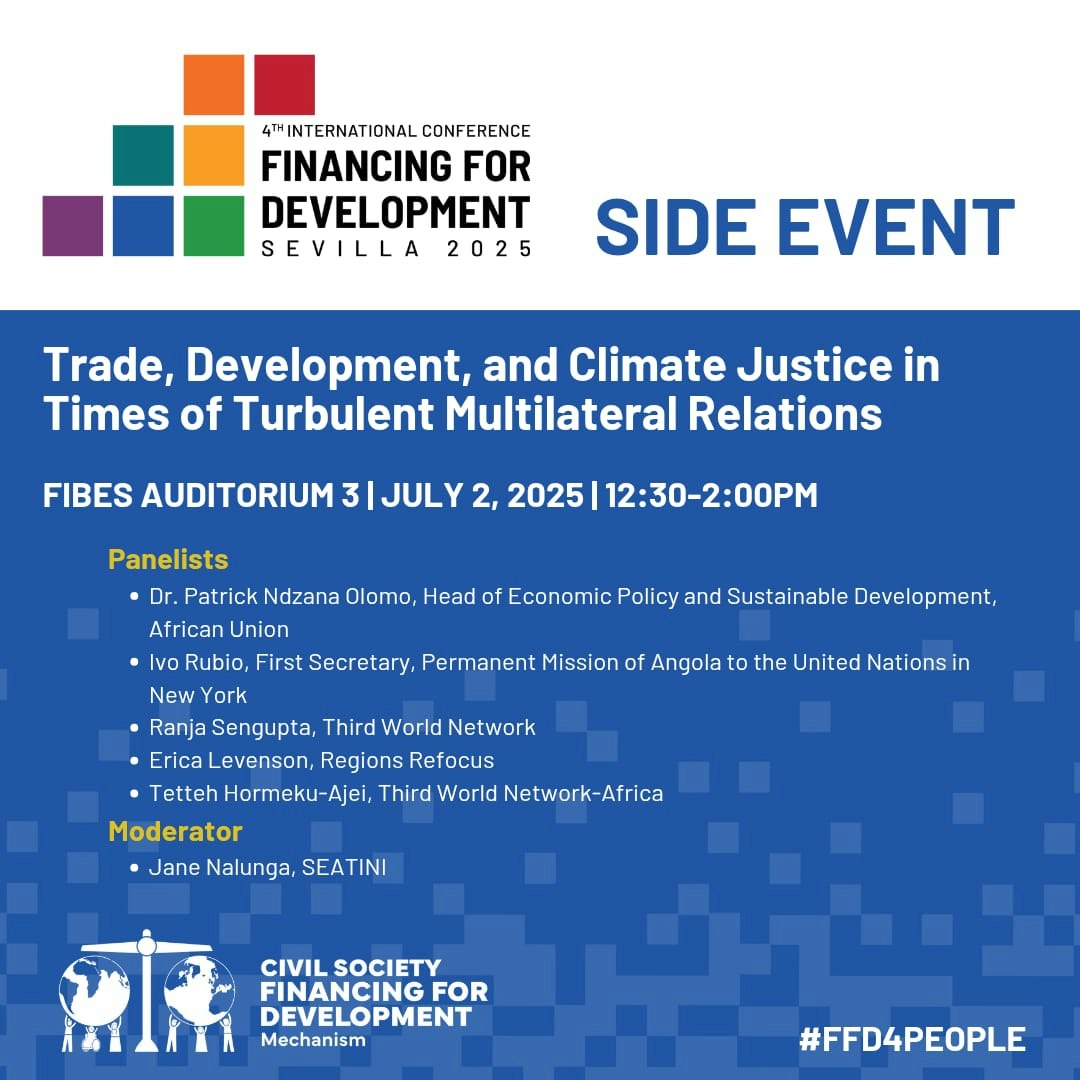Trade, Development, and Climate Justice in Times of Turbulent Multilateral Relations: Beyond Sevilla
AUDITORIUM 3 | WEDNESDAY 2 JULY | 12:30PM - 2:00PM

Abstract
This roundtable will bring together state representatives from the Global South and members of civil society to take stock of mobilizations for trade and climate justice so far and look ahead to chart a course beyond what has been achieved in Sevilla (FfD4).
Description
The purpose of trade multilateralism has been, since its inception, to act as an engine of development. However, chronic trade deficits of Global South countries, deteriorating terms of trade for primary commodity producers, and fundamentally undemocratic trade multilateralism have degraded the environment and the lives of many people in developing countries, especially women. The recent intensification of tariff and trade wars are undermining efforts towards economic structural transformation in developing countries, further aggravating the situation of marginalized communities and threatening to upend long-held principles of the multilateral trade regime. In this sense, and despite growth in global Gross Domestic Product, trade multilateralism has failed to meet its purpose.
Similarly, the purpose of climate multilateralism has been to facilitate collective action on the growing emergency of climate change and prevent the ecological, social, and economic problems caused by it. Yet, the extinction of a million species is looming, carbon emissions continue to rise each year despite accelerating ecological breakdown, loss and damage financing needs of developing countries are barely 10% met, and social inequalities– especially those related to gender– are drastically rising as they are compounded by unequal vulnerabilities and capacities to respond to the problems of climate change. False solutions to climate change, including unilateral trade measures passed by developed countries, are proliferating, and disregarding core principles of climate multilateralism such as common but differentiated responsibilities (CBDR). Climate multilateralism has therefore also not met its purpose.
Such is the backdrop for our engagement in the FfD4 and UNCTAD16 processes, two of the most historically important fora for Global South states and developing countries. Through high ambition and pressure placed on member states for concrete actions and progressive analysis, we are centering the intersecting issues of trade and climate justice in these two distinct but complementary fora. This roundtable will bring together state representatives from the Global South and members of civil society to take stock of our mobilizations so far and look ahead to chart a course towards Hanoi based on what has been achieved in Seville.